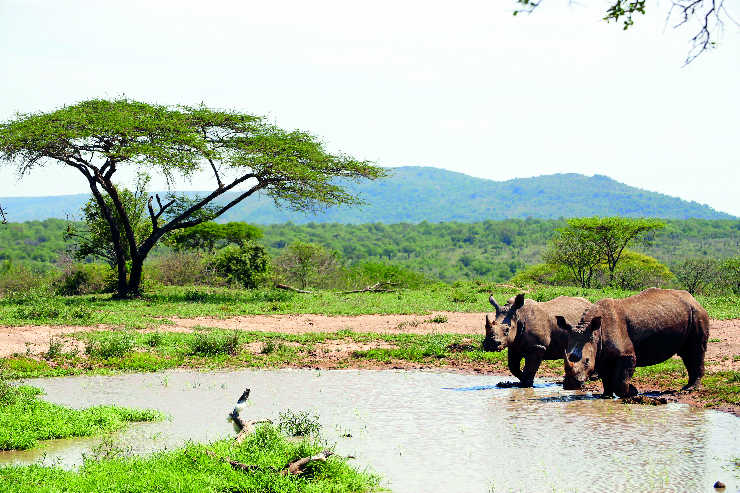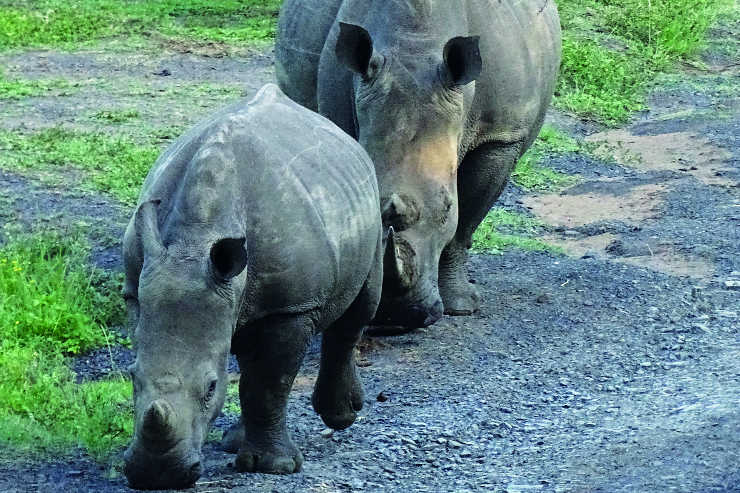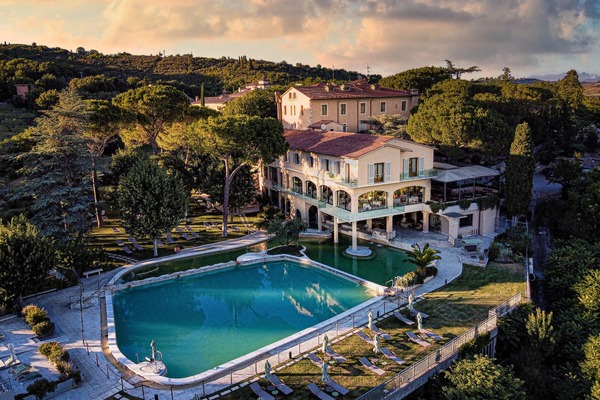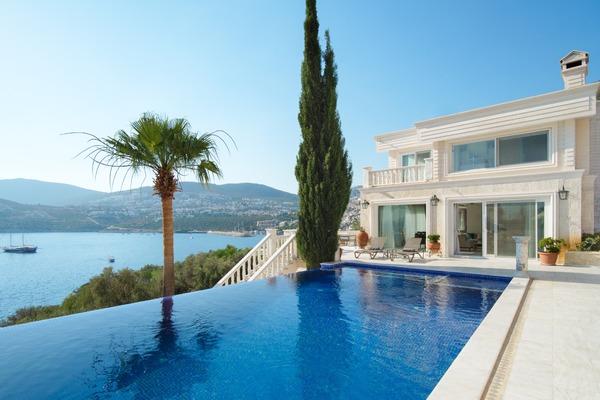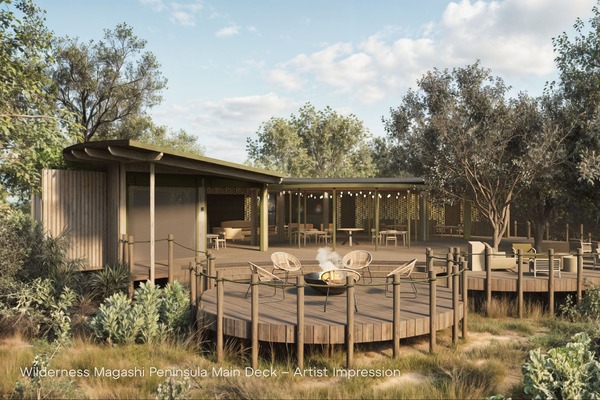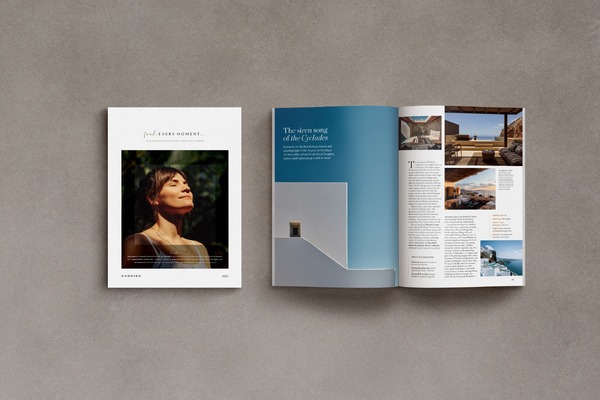How tourism is supporting endangered rhinos in South Africa
On a rhino conservation-focused trip to South Africa, Holly Tuppen learns how tourism plays a vital role in funding and supporting the plight of these endangered animals.

Holly is a responsible travel expert and writer based in the UK. After circumnavigating the world without flying in 2010, she returned ...more
Right here, look, in the sand,” booms Mr T. If he’s seen this all before, which I suspect he has, hundreds of times, it’s not dampening enthusiasm: his excitement is akin to ours. A 30cm patch of sand is dimpled and wrinkled below our feet.
“A rhino made these marks. probably this morning, rolling this way and that,” he says.
I place my hand on the tracks, savouring the pure pleasure of being so close to such a colossal beast. Four of us have been tracking rhinos on foot since sunrise as part of a walking with rhinos experience from andBeyond.
Loaded up with bug spray and the rules of the bush, we hop out of the safety of the safari truck to get in among the critters and thorns, following Mr T’s every step. Mr T – aka Mr Thembinkosi – is assistant head tracker at andBeyond Phinda Forest Lodge, and watching him at work is mesmerising. He picks out our path, following where the rhinos have been chomping on grass, rolling in mud, and rubbing ticks off onto tree bark.
After nearly two hours, he pauses. The rhinos have veered off into thick bush, leaving us with a choice – to catch up with another herd in the truck or wade through the thicket in search of our rhino. Although our guide and tracker don’t seem that hopeful, we’re keen to press on – the chase is an adventure of its own.
It was the right decision. Within 20 minutes Mr T’s hand shoots up, indicating for us all to stop. Adrenalin rises. However prepped our guide and Mr T are, the atmosphere changes.
We’re ushered forward to crouch behind a shrub to get a better view. Less than 10 metres from where we stand are two huge rhino bulls. They’ve heard us approach, ears spinning and back legs crunching branches, and now we need to stay silent and still until they relax.
After watching with bated breath for a while, we slowly retreat. The first thing that strikes me is how formidable these creatures are – so strong and silent. The second is how desperate anyone would have to be to kill them for profit.
A symbol of hope
Back at camp, I catch up with Simon Naylor, manager of andBeyond’s Phinda Private Game Reserve, where I’ve come to walk with rhinos and find out how tourism is supporting conservation. Approximately two or three rhinos are poached in South Africa every day, but Phinda is a pocket of hope, losing just three in the past eight years.
“People presume conservation is about wildlife, but often it’s as much about people,” Naylor explains.
Without buy-in from staff, local communities, guests and the country overall, there’s no hope for the future of rhinos. This is where tourism plays a vital role.
“Fifty per cent of rhinos in South Africa are on private reserves that depend on tourism to raise funds needed to support the land and implement security,” Naylor says.
Some 280 miles west across Kwa-Zulu Natal’s rural hinterland, I explore the fate of rhinos in a very different environment. Karkloof Safari Villas & Spa is surrounded by a private reserve that borders Karkloof Nature Reserve. It is just 7,400 acres, compared with Phinda’s epic 70,560 acres, but does its bit by providing a secure home to about 10 white rhinos.
Within moments of arrival, a family of three stomps right up to our vehicle. While Phinda has made the challenging but sensible decision to dehorn rhinos to deter poachers, Karkloof’s rhino horns are still intact; it’s enchanting to see these animals in all their glory.
“This is a small reserve, so security is everything. We have a saying in South Africa – good security makes good neighbours,” comments Chris Galier, part of Karkloof’s conservation team.
“About 14 nearby reserves have sold off rhino due to financial instability or lost them due to poaching.”
Karkloof has benefited from an influx of cash and experience. Founder Fred Warner’s vision was always to make rhinos work on the reserve, expanding land onto neighbouring farms where possible, while the new owner of Karkloof Safari Villas & Spa, software tech entrepreneur Colleen Glaeser, has brought her own security experience to the reserve. Axxonsoft technology uses artificial intelligence to differentiate between humans and animals to target poachers.
The solution is cheaper and more accurate than drone and thermal technology solutions, and currently helps to secure more than 2,000 acres of land in South Africa.
The power of tourism
The two contrasting approaches demonstrate how complicated rhino conservation is. While the Axxonsoft technology may well be the best short-term solution, long term, Naylor’s words ring true. Without the buy-in of people who recognise the advantages of responsible tourism, South Africa could quickly lose its entire rhino population.
I’m not under the illusion that my gentle walk with rhinos was ground-breaking from a conservation perspective, but I do feel I understand these beautiful giants better. Drumming up this level of awareness among clients is an integral part of the battle.
It’s easy to think conservation should be left to the experts, but these issues affect us all: without wildlife, there is no tourism in these parts of the world. Whether or not your clients leave home expecting it, this knowledge turns a trip of a lifetime into a lifelong passion.
Book It: andBeyond offers a conservation-focused six-night Phinda Impact Small Group Journey from £6,455pp including accommodation, flights and activities, based on departures from May 12-18 and November 24-30.
andbeyond.com
More Rhino conservation experiences in South Africa
Kwandwe Private Game Reserve runs a four-day rhino safari programme working alongside specialist rangers to track and dart endangered rhinos. The experience is offered by operators including Carrier, Abercrombie & Kent and Africa Collection. Accommodation starts from £500pppn, with a supplement of £200pp for a Save the Rhino drive experience.
Morukuru operates a programme that includes community and conservation activities, including rhino notching in the Madikwe Game Reserve. A four-night stay at Morukuru with Abercombie & Kent starts from £2559pp, while its 'Safaris with a Purpose' package costs an additional £3,000 per group.
Shambala Private Game Reserve offers guests long and short-term opportunities to volunteer with the conservation team to track rhino. Its Exotic Game Research and Handling experience starts from £278pp for a full three-day programme with guidance.
